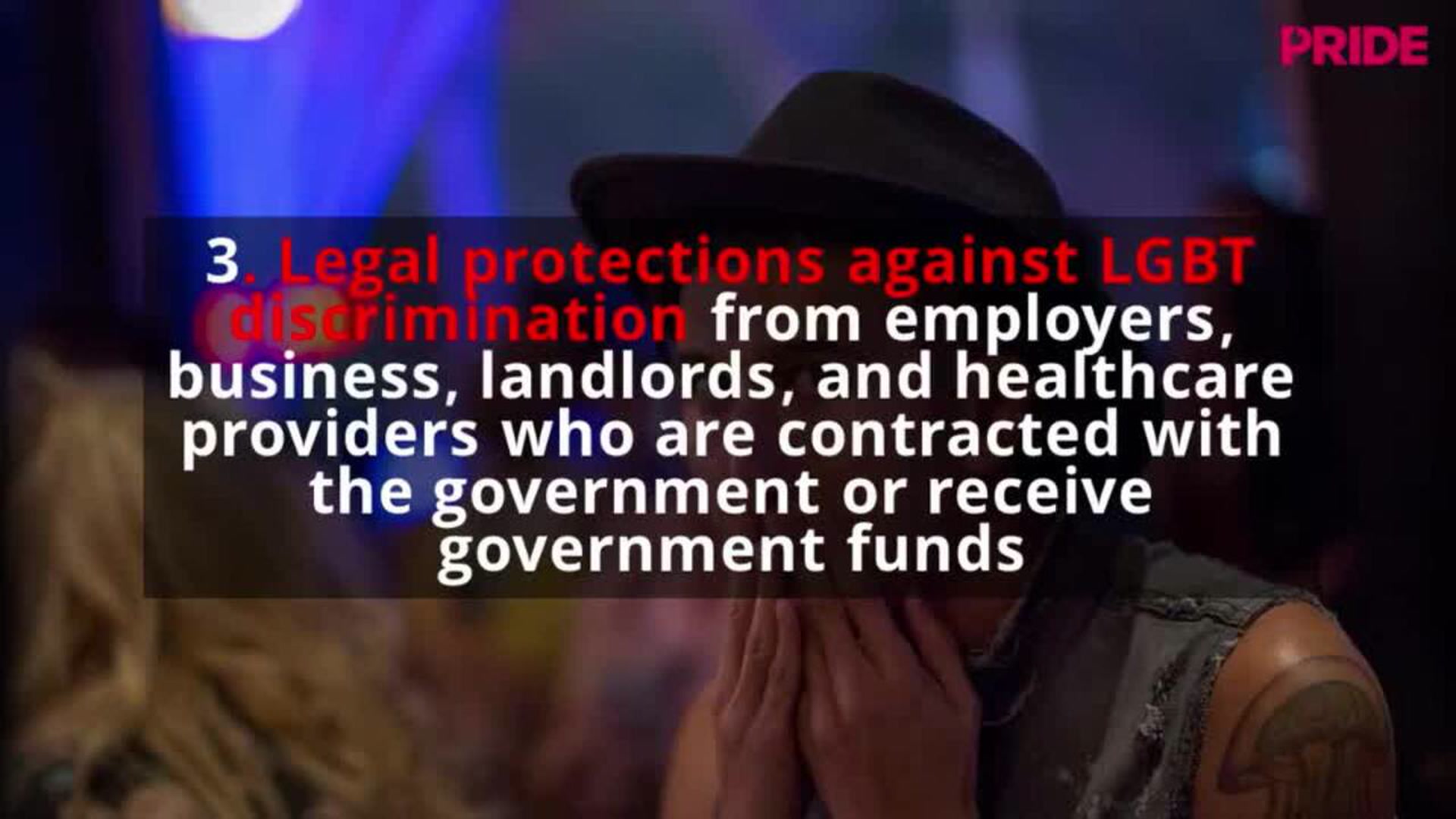Politics
5 LGBT Rights We Could Lose Under a Trump Presidency
5 LGBT Rights We Could Lose Under a Trump Presidency

Trump, Pence, and another Scalia would be catastrophic for LGBT Americans.
October 10 2016 2:05 PM EST
November 08 2024 5:32 AM EST
By continuing to use our site, you agree to our Private Policy and Terms of Use.
5 LGBT Rights We Could Lose Under a Trump Presidency

Trump, Pence, and another Scalia would be catastrophic for LGBT Americans.
Near the end of the second presidential debate, the candidates were asked who they would appoint to the Supreme Court. While Hillary Clinton said she wants a Supreme Court that upholds marriage equality, Donald Trump favors judges in the mold of Antonin Scalia—one of the most anti-LGBT Supreme Court justices to ever serve on the bench.
With anti-LGBT Indiana Governor Mike Pence as his running mate, and Trump’s comment in last night’s debate, it’s difficult not to think about how a Trump presidency would impact LGBT rights. Here are five rights we could lose if he wins.
1) Marriage equality Though the Supreme Court ruled in favor of marriage equality in June 2015, Trump opposes nationwide marriage equality. He told CBN’s David Brody that evangelical voters should trust him to overturn marriage equality, stating, "They can trust me on traditional marriage. I was very much in favor of having the court rule that it goes to states and let the states decide."
Clinton and Trump also have very different ideas about who they would appoint to the Supreme Court. In the second presidential debate, Clinton said she wants a Supreme Court that will "stick with Roe v. Wade and the woman’s right to choose," and that will "stick with marriage equality." Trump said, "I am looking to appoint judges very much in the mold of Justice Scalia," who was staunchly opposed to Roe v. Wade, and lamented against the marriage equality ruling. Since the next president will appoint at least one and as many as four Supreme Court justices, the next president could determine LGBT rights in the United States for generations.
2) The right to serve in the military On June 30, Defense Secretary Ash Carter announced the end of the ban on transgender people serving in the United States military, which was a victory for transgender veterans and closeted transgender people currently serving.
Trump responded by saying he would get away from "political correctness" in the military, and called the more inclusive policy "ridiculous." He opposes allowing transgender soldiers to serve openly, or letting women serve in frontline combat roles.
3) Legal protections against LGBT discrimination from employers, businesses, landlords, and healthcare providers who are contracted with the government or receive government funds
If elected, Trump has pledged to sign the First Amendment Defense Act (FADA) if it is passed by congress. FADA would allow any businesses, landlords, healthcare providers, and employers to discriminate against LGBT people if they claim to be motivated by a "religious belief or moral conviction that: (1) marriage is or should be recognized as the union of one man and one woman, or (2) sexual relations are properly reserved to such a marriage."
FADA would overturn the 2014 executive order signed by President Obama that prohibits anti-LGBT discrimination among federal contractors. It would essentially allow for the kind of exemption Kentucky clerk Kim Davis demanded.
4) Legal protections against discrimination from private businesses Last year, Mike Pence signed the Religious Freedom Restoration act in Indiana in response to a controversy over a Christian-owned bakery refusing service to a gay couple. The law allows businesses to use "religious freedom" as a defense against lawsuits. State lawmakers later amended the law to add language to prohibit businesses from refusing to work with people on the basis of sexual orientation.
5) The rights we don’t have yet, but are fighting for now
Several LGBT rights that we’re currently fighting for on a state-by-state basis could be won or lost depending on the next president and the Supreme Court justices that president appoints. Trump has stated he would leave the discriminatory law HB 2—the law prohibiting transgender people from using the bathroom that aligns with their gender—up to states, and would not intervene as president. If Trump is elected and appoints more judges in the mold of Scalia to the Supreme Court, it could be decades before new amendments protecting LGBT people are passed.
Fortunately, LGBT people will be voting in this election. Here's how to use your voice.
